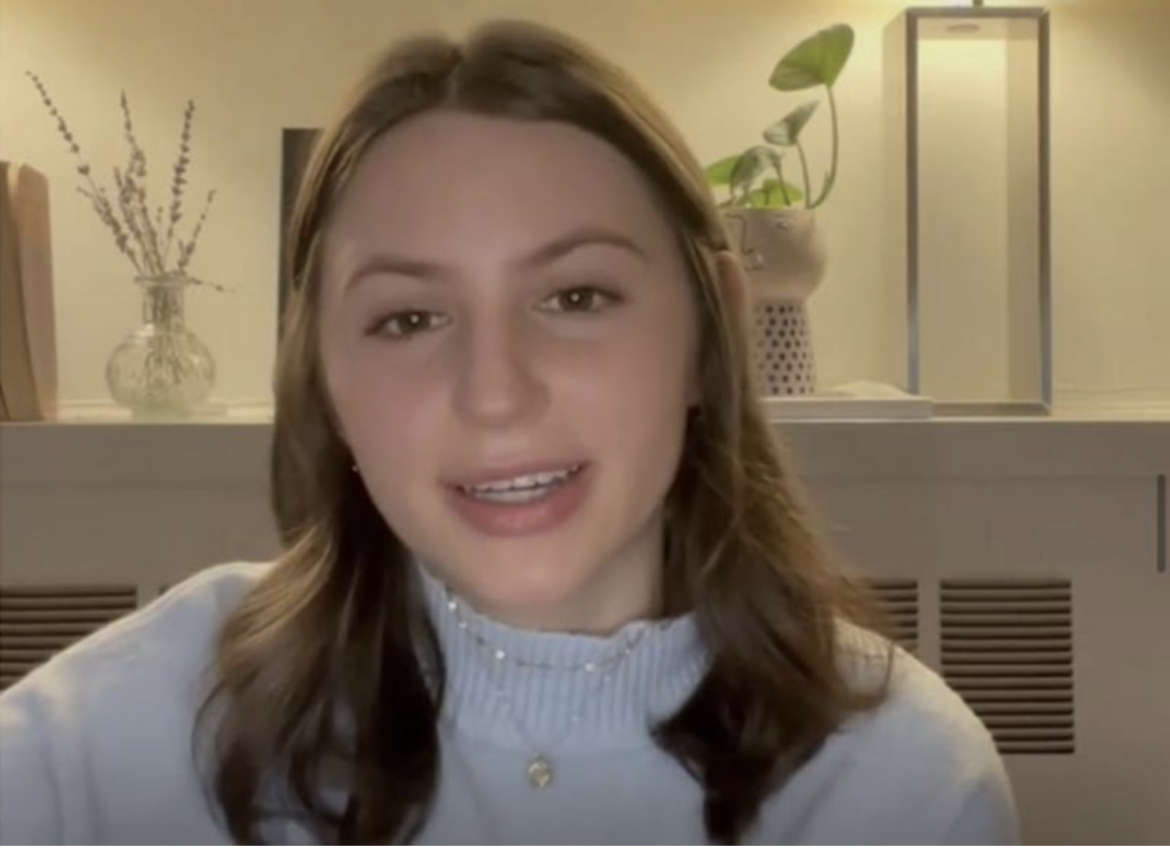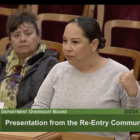This article is adapted from an episode of our podcast “Civic.” It is the third in a series about the way family courts adjudicate cases involving domestic abuse and child abuse. Click the audio player below to hear the full story.
It’s been four months since a viral video exposed the violent court-ordered removal of two Santa Cruz children from their father’s family home. The disturbing scene prompted protests on courthouse steps demanding “justice for Maya and Sebastian” and “free Maya and Sebastian,” as well as calls for action by local elected officials. But the children have yet to return.
Maya, 15, and Sebastian, 11, told a family court therapist that they were being sexually abused by their mother. They were removed from their father’s custody in October after their family court judge ruled that the children were lying and that their father was the actual child abuser because he manipulated them into making the false allegations. The judge also ordered the children into a program that would convince them to recant their allegations and reunite with their mother. Their father, Justin Laing, is unable to comment due to a gag order.
Disbelieving a child’s allegation of abuse based on the notion that the other parent brainwashed them into lying is a hotly debated legal tactic called parental alienation.
A growing chorus of international media coverage, medical groups and judicial bodies are expressing doubts over the validity of this legal defense tactic and of its practitioners.
It appears to let many abusers off the hook, according to Joan Meier, a professor of clinical law and director of the National Family Violence Law Center at the George Washington University Law School. She pointed to a 2004 study indicating that between 50% and 73% of child sexual abuse allegations during custody litigation are considered likely valid by custody evaluators and child welfare personnel. But courts on average find only 2% of child abuse claims valid.
“So, you can see by this comparison that it is extremely likely that many, many sexually abused children are being sent to their sexual abuser by courts,” Meier said.
Despite the controversy, family courts routinely rely on parental alienation testimony.
Survivor turns advocate
Twenty-year-old Ally Toyos — who recently changed her name from Cable — said years of abuse were added to her life when parental alienation proponent Robert Evans testified that she and her sister had been brainwashed into lying about their father’s alleged sexual, physical and emotional abuse. She was 13 and her sister was 11 when they first made the allegations of abuse.
“He actually called in to testify from Florida,” Toyos said. “And I had never met him. My mom had never met him.”
The judge determined that her mother’s brainwashing constituted psychological abuse. So, three years after they made their initial allegations, the girls were placed in their father’s custody where Toyos said his abuse persisted until they were able to leave when they each turned 18.
Today, Toyos belongs to a Bay Area organization called Center for Judicial Excellence, which fights harmful family court decisions. As previously reported in the Public Press, the group’s efforts to mandate education for judges and court personnel to better assess allegations of child abuse have been unsuccessful so far, thanks in part to resistance from the California Judicial Council, which represents judges and other judiciary branch staff.
Dubious origins
Parental alienation was conceived in the mid-1980s by Richard Gardner, an unpaid, part-time clinical professor of child psychiatry at Columbia University. He claimed without evidence that vindictive mothers psychologically abuse their children by brainwashing them into lying in 90% of cases where fathers are accused of sexual abuse. He diagnosed it as a psychological syndrome — a finding that never made it into the Diagnostic and Statistical Manual of Mental Disorders and was roundly rejected by the psychiatric community. Nevertheless, Gardner was a prolific expert witness in child custody cases, testifying in roughly 400 cases in 25 states — the vast majority of which advocated putting children in the custody of the parent that they claimed abused them.
A 1996 American Academy of Child and Adolescent Psychiatry journal article stated that Gardner’s book, “Protocols for the Sex-Abuse Evaluation,” was “a recipe for finding allegations of sexual abuse false, under the guise of clinical and scientific objectivity. One suspects it will be a bestseller among defence attorneys.”
Legal approach in dispute
Toronto-based lawyer Brian Ludmer regularly relies on parental alienation theory in his law practice in Canada and is called upon to act as a strategic advisor on parental alienation in cases across North America. When a child abuse accusation arises, he files a counter claim on his client’s behalf and brings in parental alienation experts to testify that the accusations are due to the other parent’s psychological abuse and manipulation of their child. He said he’s never had a client whose child abuse allegations were “substantiated as true.”
He said he believes that parents routinely psychologically abuse children by manipulating them into making false allegations of abuse. But the prevalence of sexual abuse within the family unit is another matter.
“This is so rare,” he said. “How many are so sick that they would abuse their own children rather than somebody else’s children, right? Because genetically, we have a protective instinct for own children.”
But U.S. Department of Justice data shows that half of predators committing sexual assault against kids younger than 6 are family members.
Los Angeles-based child forensic psychiatrist Catherine Barrett said focusing on the child rather than the alleged sexual abuser plays into the hands of abusive parents who claim parental alienation as a distraction to derail proceedings.
“We have a child that has been abused that has now become a pawn of the courts,” Barrett said.
Studies sow doubt
Several international studies have also generated significant uncertainty around the theory. One recent study disputed the idea that bad-mouthing one parent promotes alienation toward the other at all. In fact, it will probably backfire against the disparaging parent. The study revealed that when alienation does occur, it’s more likely due to upsetting behavior by the rejected parent like substance use, uncontrolled mental illness and child abuse.
The theory’s validity is also undermined by being unequally applied between men and women. Meier’s 2019 study revealed that when a mother alleges child abuse and the father counter claims parental alienation, the chances of her losing custody virtually doubles. When fathers allege that mothers are abusive, they are not dismissed as readily when mothers counter claim alienation.
The United Nations Human Rights Office of the High Commissioner has taken notice of this and is investigating the trend. The office announced a call for feedback by Dec. 15, 2022, on custody cases involving violence against women and children with a special focus on parental alienation.
Read the three other articles and listen to the “Civic” podcasts associated with this series:
Part one: “Coercive Control Victims Face Skeptical Judges, Court Transcripts Show”
Part two: “When Judges Dismiss Claims of Domestic Abuse, Children Can Die”
Part four: “Children’s Violent Removal From Santa Cruz Home Raises Calls to End Reunification Camps”
CORRECTION 2/24/23: Ally Toyos was 13 and her sister was 11 when they first alleged that their father had abused them. This story has been updated to clarify the timing of that event. Three years later, he was granted full custody of the girls until they became adults at 18.










